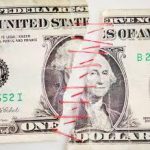Black Friday…Small Business Saturday…Cyber Monday…OH MY!! I know exactly how you feel in the moment. You see an item. You didn’t plan to purchase it but the deal is way too good to pass up…it’s calling you. It would be so perfect for you! You’ve must have it! Unable to resist the urge, you pick it up and, at the last moment, add it to your purchase. It may seem to be almost automatic, like a knee jerk reflex.
Impulse buying, by definition, is “the buying of goods without planning to do so in advance, as a result of a sudden whim or impulse.” This is virtually the worst thing you can do for your budget and your financial security. In order to establish and maintain the financial stability and consistency necessary to have LuxuriousCREDIT, it is imperative that some discipline and structure be applied to your spending habits. According to Psychology Today, there are specific reasons why we impulse buy.
- Loss aversion is one compelling reason why the impulse buyer is willing to fork over the cash. Most reasonable people have a natural desire to avoid spending too much money for fear that they won’t have enough for future needs and wants. However, marketing experts are clever enough to curtail this reason with the fear that we may lose out on a deal. The fear of future loss is a common fear that humans are naturally inclined to avoid. As a result, we make the purchase for fear that we won’t have the opportunity to take advantage of the deal or discount in the future.
- Another reason you may cave to the impulse of making a last minute unplanned purchase is that you simply love shopping! There is an enormous amount of pleasure derived from simply acquiring something new for a true shopaholic. Similar to the ecstasy that a gambler experiences with a win, a shopper can easily recall the impulse purchases that have resulted in great buys while forgetting the many last minute buys that have turned out to be nothing more than a waste of money.
- One of the most ironic yet logical reasons many shoppers with good intentions end up spending more than they plan is because of the desire to save. When a discount or additional “free” merchandise or services are offered we tend to feel a stronger desire to take advantage of the opportunity. Passing up the opportunity to save time or money simply seems to contradict our innate sense of preservation. This makes it quite difficult to avoid the perceived opportunity to spend more now, but save in the long run.
Don’t cave in to the fear of losing something that you never had. If you’ve survived this long without it, chances are you can make due without it a bit longer, at least until you are able to work it into your budget. Do not be deceived by expertly crafted marketing schemes. They are specifically designed to convince you to fork over your hard earned dough. If you didn’t plan to purchase it in advance, don’t buy it. If you decide you truly do need it, plan to purchase it on a future shopping trip. You may find that you didn’t actually need it after all.
Take just a moment to stop and think about each of these influences the next time you’re out shopping. If you simply love shopping and trying to treat yourself, but it’s not in the budget, try to enjoy the thrill of the purchases that do fit into your budget such as groceries and household goods. These are items that you will regularly need to restock, but you can flip your routine and make the trip more exciting by trying new products, brands, or recipes.
Finally, stay out of the savings trap! If you spend more than you actually have or want to spend on things that you may not actually need, are you ACTUALLY saving? Not likely. The fear of failure to take full advantage of what seems to be a good deal is just a feeling. A smart shopper plans ahead and shops with a strategy in mind. By avoiding the impulse buying pitfalls mentioned here you can protect yourself, your budget, and ultimately your credit from the dangers of impulse buying.






